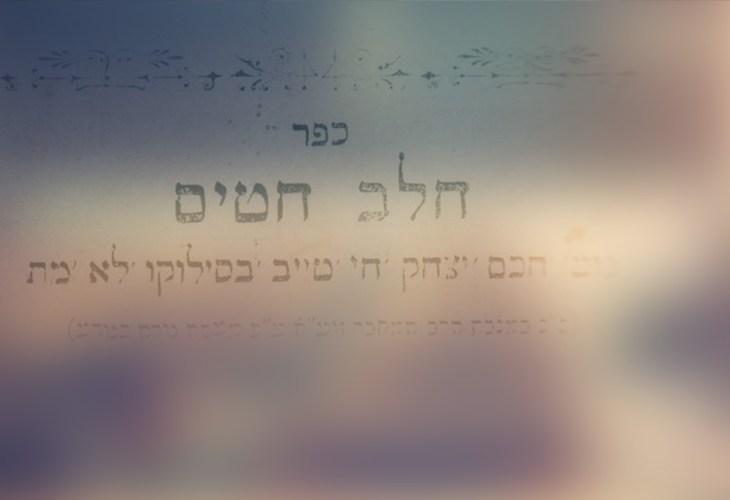Torah Personalities
Rabbi Chai Taieb "Did Not Die": The Legend Behind a Tunisian Sage
The surprising story behind a name, a forgotten manuscript, and a legacy of hidden miracles

The Inscription That Sparked a Legend
One of the most beloved Sages of Tunisian Jewry was Rabbi Chai Taieb, famously known by the curious epithet: “Rabbi Chai Taieb Did Not Die.” Many assume the phrase reflects a miraculous tale, much like the tradition surrounding Rabbi Yehuda HaNasi, whose presence was felt in his home even after his passing. But as Rabbi Meir Mazuz, rosh yeshiva of Kissei Rachamim, explains, the origin of this title is far more down to earth.
When Rabbi Taieb passed away in 1837, a simple Jew was entrusted with inscribing his headstone. Not well-versed in rabbinic etiquette, the stonecutter wrote plainly in Hebrew: “Rabbi Chai Taieb died…” That night, he was tormented by unsettling dreams. He awoke with the realization that using the word “died” for a tzaddik (righteous man) was improper. “The righteous are called alive even in death,” say the Sages. He rushed to the cemetery and, rather than erase the word, simply added one: “not.” The final inscription? “Rabbi Chai Taieb did not die.” And so a legend was born.
A Sage Without a Title, Revered by All
Though Rabbi Taieb never held an official rabbinic position, his wisdom and righteousness were deeply respected by both the Torah scholars of Tunisia and its simple Jews. He was a man of Torah who spoke freely with other Sages and answered questions from anyone who sought his counsel. Many stories of miracles are linked to his name, such as infertile couples who merited children, rain in times of drought, and other wondrous salvations.
In one story, a once-wealthy man who used to support ten Torah scholars annually had fallen on hard times. Still, he longed to continue his support. Rabbi Taieb told him, “Go now to such-and-such street.” Trusting the Sage, the man went and soon encountered a royal messenger seeking a specific type of porcelain. The man, now destitute, had no way to help. But moments later, a stranger approached and offered to sell him that exact porcelain at a bargain price. The man earned a fortune and resumed his support of Torah scholars.
Even the Porter Is a Scholar
In another tale, a rabbinic emissary from the Land of Israel arrived in Tunisia but made disparaging remarks, claiming there was no Torah wisdom outside the Holy Land. Rabbi Taieb heard of this and devised a plan. Disguised as a porter, he waited at the port and offered to carry the emissary’s suitcase.
As they walked, Rabbi Taieb began asking intricate questions in halacha (Jewish law) and Talmud and Midrash. The emissary, astounded, finally exclaimed, “I was mistaken about Tunisia. If this is the caliber of a porter, who am I to speak ill of its Torah scholars?”
A Legacy Remembered
Rabbi Taieb authored a series titled “Cheilav Chitim,” but tragically, most of his writings were destroyed in a fire, and only fragments remain. Nevertheless, his legacy endured. He passed away at the age of 93, and his name continues to be honored to this day.
Roughly twenty synagogues across Israel are named after him, and his yahrzeit (anniversary of death) is celebrated each year with joy, stories, and words of Torah. Though most of his writings may be lost, the impact of his humility, wisdom, and quiet miracles lives on, ensuring that in the hearts of many, Rabbi Chai Taieb did not die.

